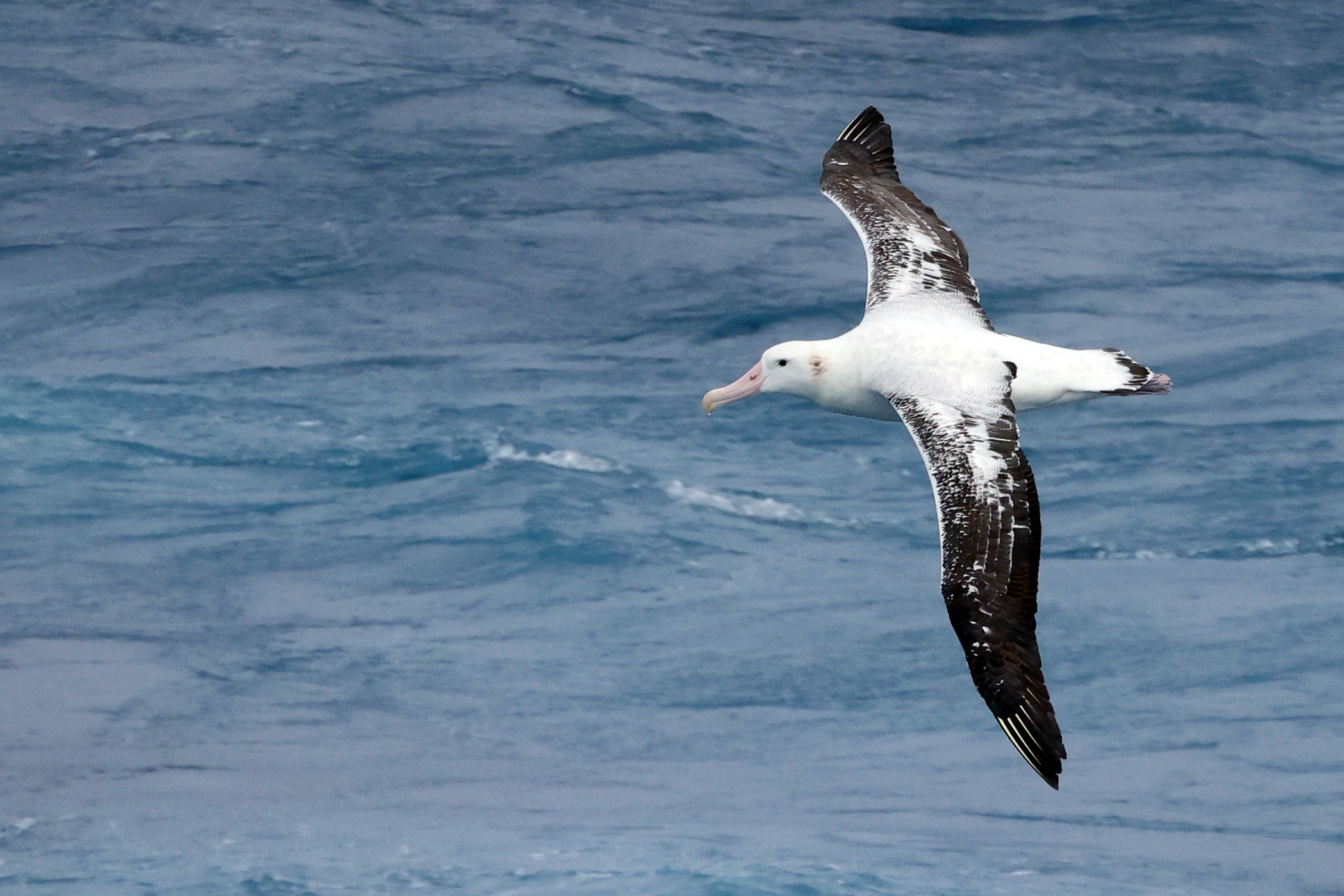
The flight responses of 294 Wandering Albatrosses to winds have been analysed in a new study by Natasha Gillies (School of Environmental Sciences, University of Liverpool, Liverpool, UK) and colleagues. The research published open access in, Journal of Animal Ecology, examines the relationship between the personality trait of boldness and behavioural plasticity in flight decisions to varied wind conditions.
The paper’s abstract follows:
- “Behavioural plasticity can allow populations to adjust to environmental change when genetic evolution is too slow to keep pace. However, its constraints are not well understood. Personality is known to shape individual behaviour, but its relationship to behavioural plasticity is unclear.
- We studied the relationship between boldness and behavioural plasticity in response to wind conditions in wandering albatrosses (Diomedea exulans).
- We fitted multivariate hidden Markov models to an 11-year GPS dataset collected from 294 birds to examine whether the probability of transitioning between behavioural states (rest, prey search and travel) varied in response to wind, boldness and their interaction.
- We found that movement decisions varied with boldness, with bolder birds showing preferences for travel, and shyer birds showing preferences for search. For females, these effects depended on wind speed. In strong winds, which are optimal for movement, females increased time spent in travel, while in weaker winds, shyer individuals showed a slight preference for search, while bolder individuals maintained preference for travel.
- Our findings suggest that individual variation in behavioural plasticity may limit the capacity of bolder females to adjust to variable conditions and highlight the important role of behavioural plasticity in population responses to climate change.”
Reference:
Gillies, N., Weimerskirch, H., Thorley, J., Clay, T. A., Martín López, L. M., Joo, R., Basille, M., & Patrick, S. C. 2023. Boldness predicts plasticity in flight responses to winds. Journal of Animal Ecology, 00, 1–13. https://doi.org/10.1111/1365-2656.13968
18 August 2023

 Français
Français  English
English  Español
Español